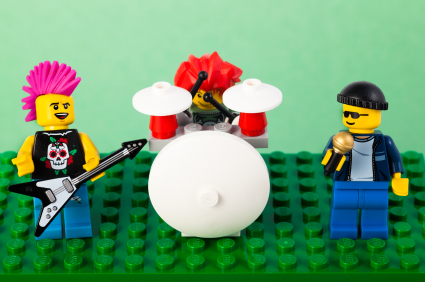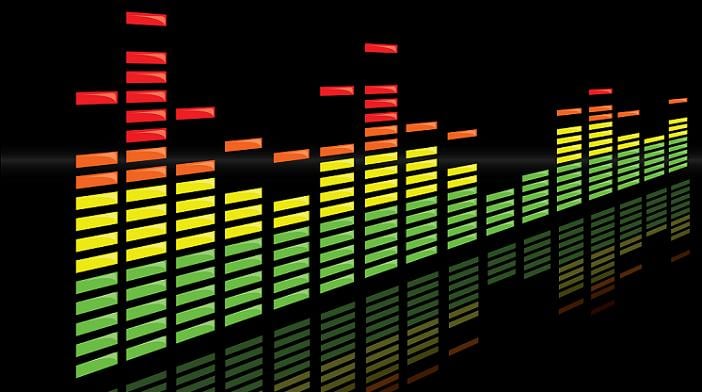Musician Tips: The importance of a contract and professionalism when collaborating

Here’s the scenario: You’re out and about watching another indie artist perform and you think your styles would blend well together. After the show you approach him and ask if he wants to collab. He says sure, and you make a plan to meet a couple days later.
What you do from here will make a world of difference in the long run. Here are some tips to help navigate the collaboration process:
The first meeting
This should be a brief get together to discuss the goal of the collaboration project. This is not the time to create, just a short meet up to make a plan which should include:
- What type of project do you want to work on? One song, an EP, a gig? There are lots of possibilities.
- A basic idea of who will do what on the project. Although this may change in the creative process it is a good idea to note each participants intended contribution.
- A rough schedule of when you can meet to create, and when you want to complete the project. Even if you are both free spirits, set a deadline. This can always be adjusted, but without a deadline the project could just stall.
- The terms of payment (if any), and time frame for payment
- How the project will be used. For instance, will only one of you put this on your album or are you creating a song to shop to a third party band or artist.
The contract
Yes, I said contract. That word that makes you cringe at the thought of mentioning it to another person. To lessen the dread, we can call it an agreement, which is basically what a contract is…an agreement of terms between two parties. Simple right? Well, kind of. Here are some important points to keep in mind when drafting an agreement:
- After your first meeting one of you should take the notes and put them into a basic agreement. At the very next meeting before any work begins, each person involved should read over the agreement and sign it. Anyone hesitant to sign an agreement is usually someone who wouldn’t honor it anyway.
- Add in a clause that allows you both to exit out of this project up to a certain point if the collaboration is not working. In the beginning everything is sunshine and daisies, but as time goes on, the project may turn in a direction you don’t want your name associated with.
- You can never be prepared for everything, but if you have any concerns up front it’s best to include them in the agreement. If something comes up later that drastically changes the project it is best to write up an addendum, have all parties sign it, and attach it to the original agreement.
- An agreement does not need to be notarized or written up by a lawyer. A notary basically just acknowledges the signatures and with basic agreements this is unnecessary. Unless you are creating a very detailed project you do not have to pay a lawyer to prepare a contract.
If you do want something a bit more professional than a hand written or typed contract, you can check out some online resources that offer standard work agreements. Here are a few to get you started:
www.musiccontracts.com
www.musiccontracts101.com
Written vs. oral agreements
Always use a written agreement as oral contracts lead to misunderstandings. You may say, “well he is my friend and he wouldn’t do me wrong.” I’m here to tell you that written agreements between friends is even more important than between strangers. When you have a signed agreement it keeps the professional relationship separate from your buddy relationship. This also makes it easier to hold each other accountable when lines are blurred. When a conflict occurs, instead of arguing about it you can just say, “Hmm...I forget, let’s check the agreement.”
Professionalism in the creative process
Although the music industry can be flashy and fun, remember that this is your business. There is a time and place for everything, and partying all the way through the creative process will not sustain your career. This is not to say you can’t have a good time through the process but always remember that there is a balance between creativity and business. Here are some tips for maintaining professionalism throughout the creative process:
- Keep the partying and groupies out of the creative process and celebrate after you have come up with that collaboration hit!
- When you go into the studio or a creation session, set a time limit. Leaving this process open ended does not get much done. Once you are in the zone you can allow for more time but when you first begin set an attainable goal like “let’s get the melody created by {--o’clock}”. Then once that is done, move onto the next part of the song or project. This will keep the project moving forward.
- Don’t burn bridges. If a collaboration doesn’t work out, don’t bad mouth your collaboration partner all over the internet. This is a small industry and you may have to work with this person again, or know someone with important connections who works with this person.
- Rule of thumb is... If you find that a person is super picky, very opinionated, unprofessional, or difficult to work with up front…. it will continue. Listen to your gut feeling in the initial meeting and know when to cut your losses.
- Remember to work together for the good of the project. The main reason to collab is to blend styles to get a great end result. Always explore each other’s ideas and don’t let your ego take over.
- Always give credit where credit is due. Even if you worked on a project a little more than the other person, always recognize them for their contribution. This keeps your music karma in balance.
I’m sure many of you have had experiences with collaborating. We’d love to hear about them, both the good and the bad!
*And if you're looking for ideas for how to collaborate with other artists, check out our blog post "21 Ways to Collaborate with Other Artists & Bands to Get More Fans".







